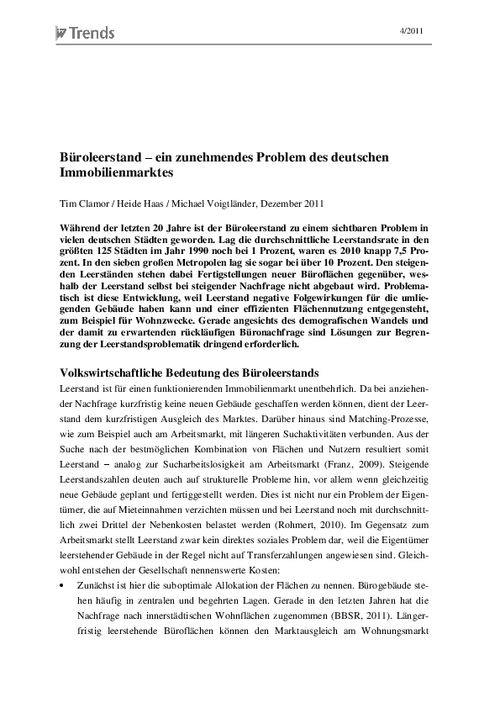A Challenge for the German Real Estate Market
A Challenge for the German Real Estate Market
During the last 20 years office vacancy has become a visible problem of the German real estate market. Whereas the average vacancy rate of the biggest 125 German cities was only 1 percent in 1990, the rate soared to 7.5 percent in 2010. In the seven German metropolises the average vacancy rate is even above 10 percent. In spite of increasing vacancy new office space has been built so that even with increasing demand the vacancy has not been reduced significantly. Since vacant buildings have a negative impact on neighboring buildings and block the efficient use of space, for instance for housing purposes, office vacancy is not only a problem for the owners but also for society. Given the expected reduction of labor force due to demographic change, a further reduction of office demand is expected so that solutions to dampen the vacancy problems are urgent.
Download | PDF
More on the topic

The 9th IW Survey of Further Training
In 2016 some 85 per cent of companies in Germany were active in continuing vocational training, using a broad mix of methods.
IW
Has the German Economy Reached its Limit?: Skilled Labour Shortages as a Brake on Growth
The German economy is performing significantly better than was expected in the first few months of this year. During the course of 2017, certain early fears – especially of a weakening of the global economy due to increasing protectionism – have proved ...
IW

